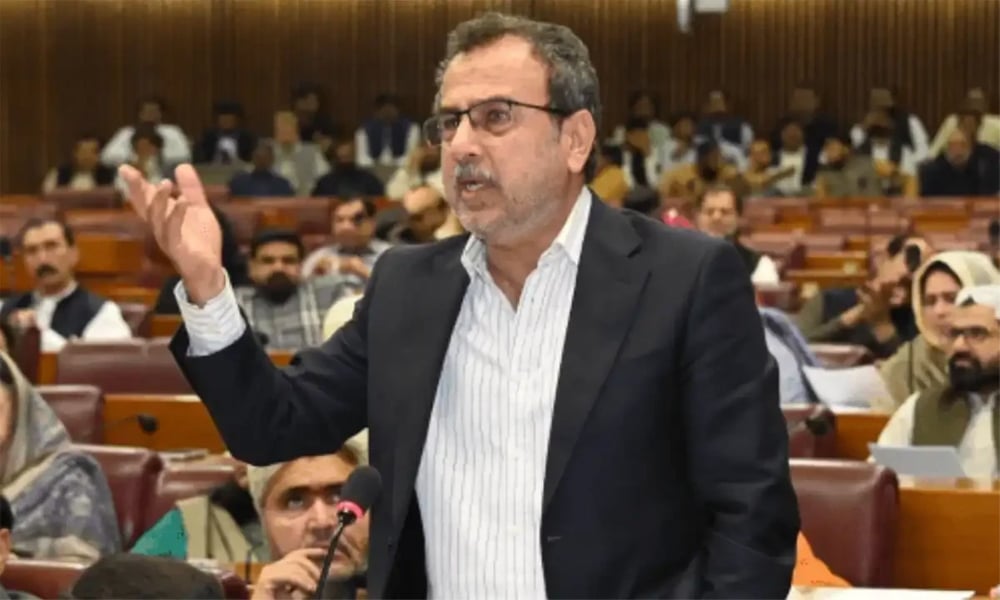PTBP Web Desk
The National Judicial (Policy Making) Committee (NJPMC) has established a specialized body to address the issue of protracted litigation and injunctive orders in commercial, revenue, and fiscal cases, aiming to formulate actionable recommendations for the improvement of judicial efficiency.
Justice Shafi Siddiqui, a judge of the Supreme Court of Pakistan, will head the newly constituted committee. Its members include Justice Abid Aziz Sheikh (Lahore High Court), Justice Agha Faisal (Sindh High Court), Justice Arshad Ali (Peshawar High Court), the Attorney General for Pakistan (AGP), and the Chairman of the Federal Board of Revenue (FBR).
The committee will also examine the AGP’s suggestions on the Recognition and Enforcement of Foreign Arbitral Awards, placing its recommendations in the next NJPMC meeting.
The 54th meeting of the NJPMC was held on Monday at the Supreme Court of Pakistan, chaired by the Chief Justice of Pakistan. Chief Justices of all High Courts attended, while AGP Usman Mansoor Awan participated on special invitation.
The committee unanimously emphasized the need for a comprehensive mechanism ensuring that any detained person is presented before a magistrate within 24 hours. The AGP assured that such a mechanism would be developed and presented at the next NJPMC meeting.
The NJPMC commended High Courts for formulating standard operating procedures (SOPs) but emphasized the inclusion of stage-wise timelines from complaint filing to final action. It was agreed that instances of extraneous influence should be reported within 24 hours, with action finalized within 14 days. SOPs will also provide immediate redressal to protect the dignity of the complainant judge, along with a reporting mechanism to the Chief Justice of Pakistan. High Courts are tasked to notify SOPs and share them with the LJCP.
The NJPMC prescribed uniform timelines for various categories of cases, ensuring timely access to justice:
- Declaratory Suit (Land Disputes): 24 months
- Declaratory Suit (Inheritance Disputes): 12 months
- Injunction Suit (Land Disputes): 6 months
- Recovery Suit (Public Revenue/Money Matters): 12 months
- Specific Performance (Contract Enforcement): 18 months
- Rent Cases: 6 months
- Family Suit (Dissolution/Dower/Maintenance/Guardianship): 6 months
- Succession Cases (Uncontested): 2 months
- Execution Petitions (Family Court Decree): 6 months
- Execution Petitions (Banking/Civil Court Decree): 12 months
- Execution Petitions (Rent Matters): 3 months
- Criminal Trial (Juvenile Offenders-JJSA, 2018): 6 months
- Criminal Trial (Punishment up to 7 years): 12 months
- Criminal Trial (Punishment above 7 years): 18 months
- Criminal Trial (Murder): 24 months
- Labour Cases: 6 months
These timelines will be included as key performance indicators in judges’ evaluation and integrated into the judicial dashboard.
The NJPMC appreciated progress by Sindh High Court (SHC) and Peshawar High Court (PHC), highlighting their contribution to enhancing access to justice. The committee also stressed the importance of pre-trial mediation and legislative intervention at federal and provincial levels. The AGP assured updates on mandatory pre-trial mediation would be presented in the next meeting.
The NJPMC discussed performance evaluation, standardized recruitment, establishment of a District Judiciary Policy Forum (DJPF), parity in service terms, and access to international exposure opportunities. The Chief Justice of Lahore High Court will now join the committee formulating recommendations on these matters.
The committee also highlighted the Professional Excellence Index as a vital tool to promote professional standards and strengthen the effectiveness of the judicial system.
The forum encouraged High Courts to establish user-friendly public forums at both High Courts and District Courts for information and complaint redressal. The LHC may pilot this initiative with the oldest civil cases, assigning them to Model Civil Courts under a time-bound trial regime.
The committee deliberated on jail reforms and decided to share reports from Provincial Sub-Committees and the Prison Reform Action Plan with High Courts. A National Prison Policy will be drafted and presented in the next NJPMC meeting. Other issues discussed included suspension of sentence pending appeal and the repatriation of judicial officers in special courts and tribunals.
The AGP committed to facilitating High Courts in posting audit officers in coordination with provincial Accountants General for internal audits.




